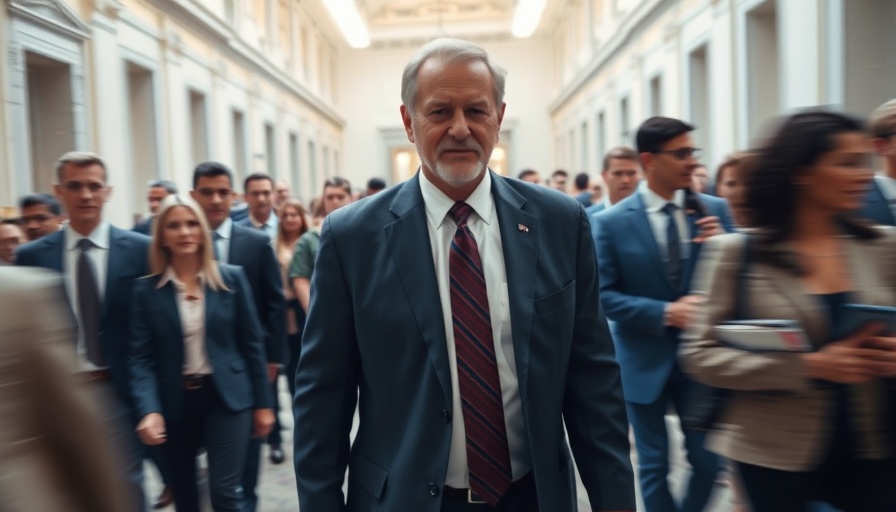
RFK Jr.'s Shift on Measles Vaccination: A Growing Concern
The recent outbreak of measles in West Texas has stirred public health debates, especially following U.S. Health Secretary Robert F. Kennedy Jr.'s evolving stance on vaccinations. Initially, Kennedy dismissed the situation, labeling the outbreak as 'not unusual.' However, following significant pressure and rising cases—now confirmed at 158, with one tragic death—he has publicly urged parents to consider vaccinating their children. This change reflects a vital shift within health advocacy, particularly from a high-profile skeptic on vaccines.
The Gravity of the Current Measles Outbreak
The West Texas outbreak is notably alarming, marking the worst measles crisis in Texas in over three decades. With a predominantly affected demographic of children under 17, health officials stress the importance of widespread immunity to combat such virulent strains. According to Kennedy, 'Measles is highly contagious, with 9 out of 10 unvaccinated people exposed becoming infected.' This grim reality underlines the urgency for vaccination, as those infected have the potential to spread the virus to an average of 18 other individuals.
Understanding Vaccination and Community Immunity
In his recent op-ed, Kennedy highlights the dual role of vaccines: not only do they protect individual children from measles, but they also fortify community immunity. This concept is crucial, as it ensures that those who cannot receive vaccines due to health reasons—such as allergies or compromised immune systems—remain safeguarded. As Kennedy emphasized, vaccines contribute to a larger societal health protection mechanism. 'Healthcare providers, community leaders, and policymakers have a shared responsibility to protect public health,' he remarked, stressing the importance of accurate information regarding vaccine safety and efficacy.
The Broader Context of Vaccination Rates in the U.S.
As the measles outbreak progresses, it prompts a wider discussion about vaccination rates across the nation. In fact, the Centers for Disease Control and Prevention (CDC) has reported declining vaccination rates, leading to fears of further outbreaks. Kennedy alluded to this reality in stating that prior to the introduction of the measles, mumps, and rubella (MMR) vaccine in the 1960s, virtually every child experienced measles. With this historical perspective, it becomes clear how advancements in vaccinations have reshaped public health.
The Importance of Quick Actions
In a proactive response to the outbreak, Kennedy has instructed the CDC to collaborate closely with Texas health authorities, providing necessary laboratory support and technical assistance. 'While there is no approved antiviral treatment for measles, recent guidelines recommend administering vitamin A for those with various infection severities,' he noted, referencing studies showing how vitamin A can dramatically reduce mortality associated with the disease. Such measures are pivotal in managing the outbreak and promoting public health.
Implications for Future Outbreaks and Public Health
This outbreak serves as a stark reminder of the importance of maintaining high vaccination rates to prevent the reemergence of eradicated diseases. As health officials continuously warn against the risks posed by measles in regions with lower vaccination coverage, it emphasizes the delicate balance between individual choice and community health responsibility. The challenge is to reinstate public trust in vaccination through transparency and education.
As the situation develops, it remains essential for Texas residents to stay informed and consider vaccination not just for protection but as a community commitment to public health. With Kennedy’s shift towards advocating for vaccine uptake, the conversation surrounding vaccinations is more pertinent than ever, reinforcing that informed decisions must be based on current facts and the collective wellbeing of society.
 Add Element
Add Element  Add Row
Add Row 



Write A Comment